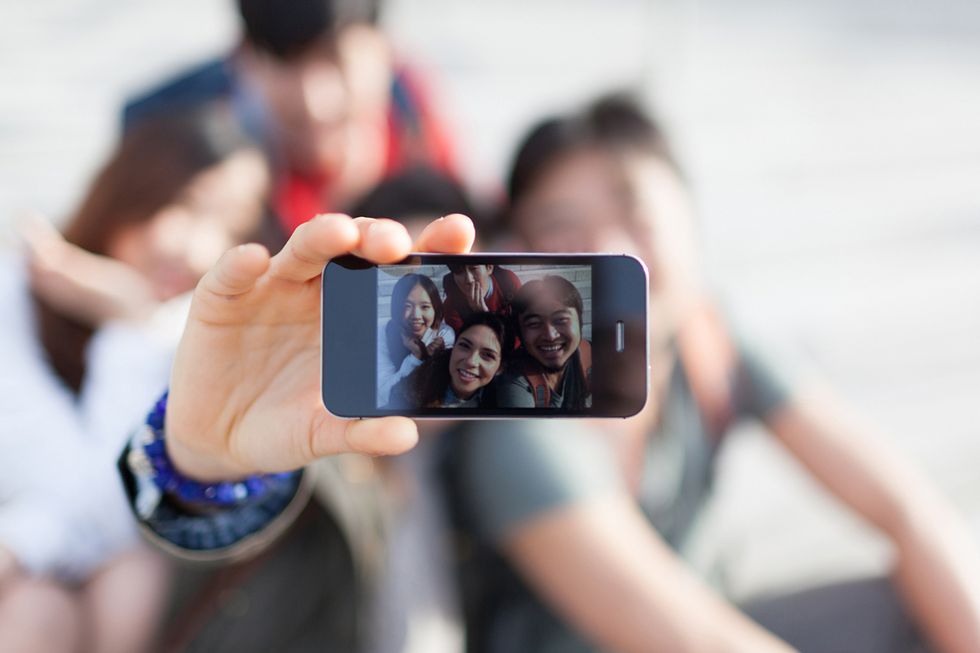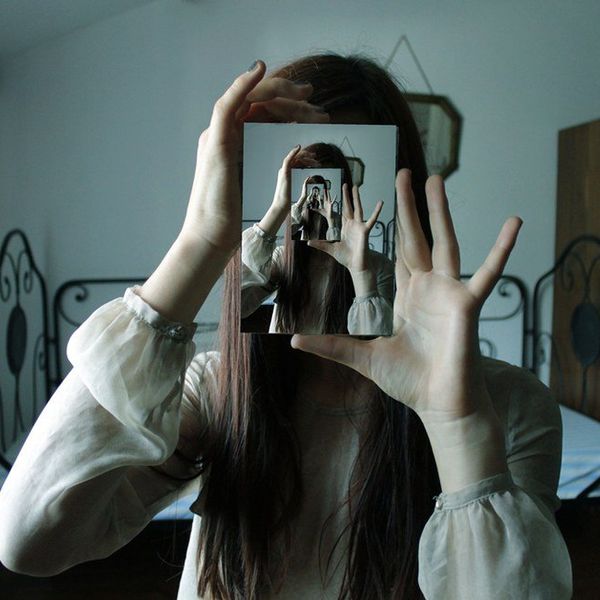When I first tried to come up with an answer to my professor's question, "What do selfies mean to me?" I started by looking through the photo libraries on my Macbook and iPhone. They’re both filled with thousands of pictures captured over the past few years. Apple just recently added a new feature to the photo library which can tell which pictures were taken with the front-facing camera, sending them into a separate album titled “Selfies.”
This title is somewhat misleading — after all, not every photo taken with the front-facing camera is technically a selfie. In fact, after looking through this album, I realized that almost every photo I have taken with the front-facing camera was not a selfie, but rather, one of me and one or more other people.
I examined the few actual selfies I had and noticed quickly that a majority of them were taken when I was just alone in my room. I had either just gotten a haircut, thought my makeup looked good or simply thought I looked nice in general that day. On the rare occasion that I was in public, it was either done because I wanted to make my friends laugh or I had just gotten my wisdom teeth out.
Some may argue that selfies can document memories but looking through my albums, the moments I have felt were worth capturing had been with people I care about. The pictures I look the happiest in are not the selfies, but the photos I have with my family and friends.
I believe that selfies tend to isolate us and perhaps, even force some to portray a false version of themselves on social media. When doing something new or exciting, people who are obsessed with taking selfies only care about getting the perfect one to show to all their followers on mediums such as Facebook and Instagram.
Instead of enjoying the moment they are in, they spend extra time adjusting their arm, holding their phone at different angles to see which has the best outcome. Instead of just snapping one picture, they take multiple ones in a row, examining each to pick which one has the best lighting. While this is happening, their group of friends may be off having a separate conversation that he/she is now not a part of. “Hey, let’s take a picture together,” turns into, “Move, you’re ruining my selfie.”
Some may argue that selfies promote confidence, therefore making them a positive thing. I do agree with this statement to an extent. Yes, it definitely promotes a positive self-image when you post a photo of yourself that you can say you are truly happy with on social media. However, when you use applications like “Perfect 365” to edit every little blemish out of your face, it becomes the opposite of self-confidence. In case you aren’t already aware, Perfect 365 and other apps like it are available for downloading on most smartphones. They have the ability to edit selfies similar to the way they are edited for magazine advertisements. In other words, they help those who take selfies to “fix” their face until they feel it is acceptable to post to their followers and the rest of the Instagram world.
There are massive amounts of people who profit from the fake image they portray on social media. Instagram models have gotten more common making it easier for them to make money when they advertise products on their pages. I, personally, would hate to be an Instagram-famous model simply for the fact that they constantly feel the need to keep to a certain standard. Their self-worth eventually becomes based on how many likes they get. This not only does damage to your mental health, but to your physical health as well. Many of these Instagram models may turn to poor eating habits in order to achieve a certain body type all so they can please their audience. They disconnect themselves from real life, causing them to lose touch with the people they love. The whole thing is screwed up.
So to answer my professor’s question, what do selfies mean to me? The answer is, I could never let them mean more to me than any of the things that should really matter. I could never become so invested in a selfie that it caused me to lose sight of who I actually am in the real world.



















